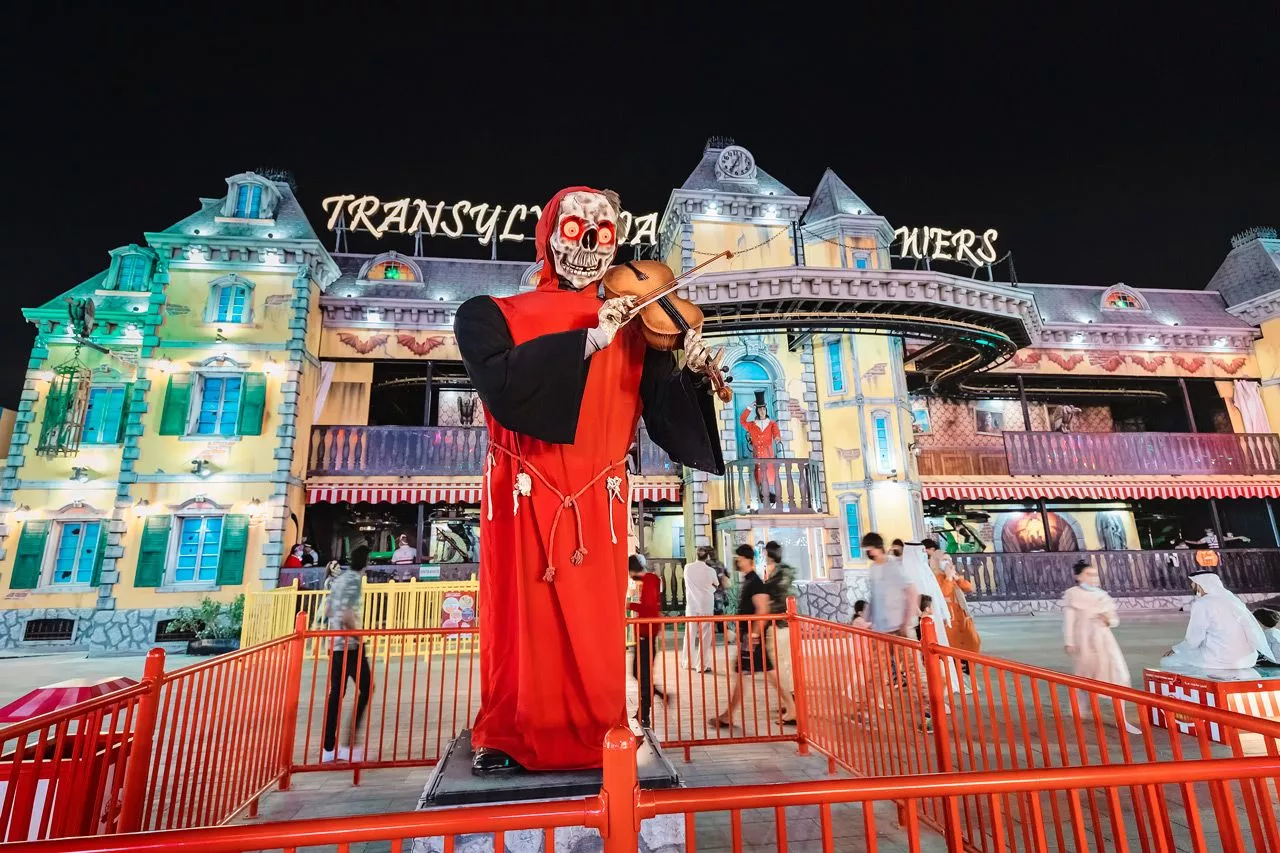Holidays in the UAE 2023-2024

The UAE is a very religious country, with the majority of the important dates and events representing Islamic holidays. Regardless of whether you are planning a move here or visit as a tourist, it is worth getting acquainted with the lifestyle and traditions of the local population in advance. Keeping track of private sector holidays in the UAE will allow you to plan short trips without taking too much time off from work. However, during school vacations in the UAE, parents should get to know the school’s annual calendar, as its holiday dates may differ from national holidays in the UAE. In addition, you may find that many government offices, currency exchange offices, immigration offices, or banks may be closed for several days in a row due to the holiday period. In this article, we have compiled a list of major holidays and significant dates in the UAE for the period 2023-2024, with a brief description of each, so you won’t miss out on anything important.
Getting to Know the Muslim calendar in the UAE
Unlike the Gregorian and Julian calendars, which are based on the solar movement, the Islamic calendar (also known as the Hijri calendar) depends on the lunar movement. According to the lunar cycle, the Muslim calendar is divided into 12 lunar months and has 29 or 30 days in each. The UAE uses the “Arab cycle,” which consists of 30 years, 19 of which include 354 days and the remaining 11 years have 355 days. This means that from relying on the Gregorian calendar, all holiday events in the UAE occur about 10 or 11 days earlier, as it has 365/366 days. NBD! The Hijri calendar dates back to 622 A.D., when the Prophet Muhammad and the first muslims migrated from Mecca to Medina. Thus, the difference between the Muslim and Gregorian calendars is 578 years. In the UAE, there is a designated Committee for Crescent Observation, which deals with the definition and compilation of Muslim holidays, as well as the dates on which they fall. Not all holidays in the UAE are days off. For example, during the holy month of Ramadan, all authorities and individuals work on a reduced schedule.
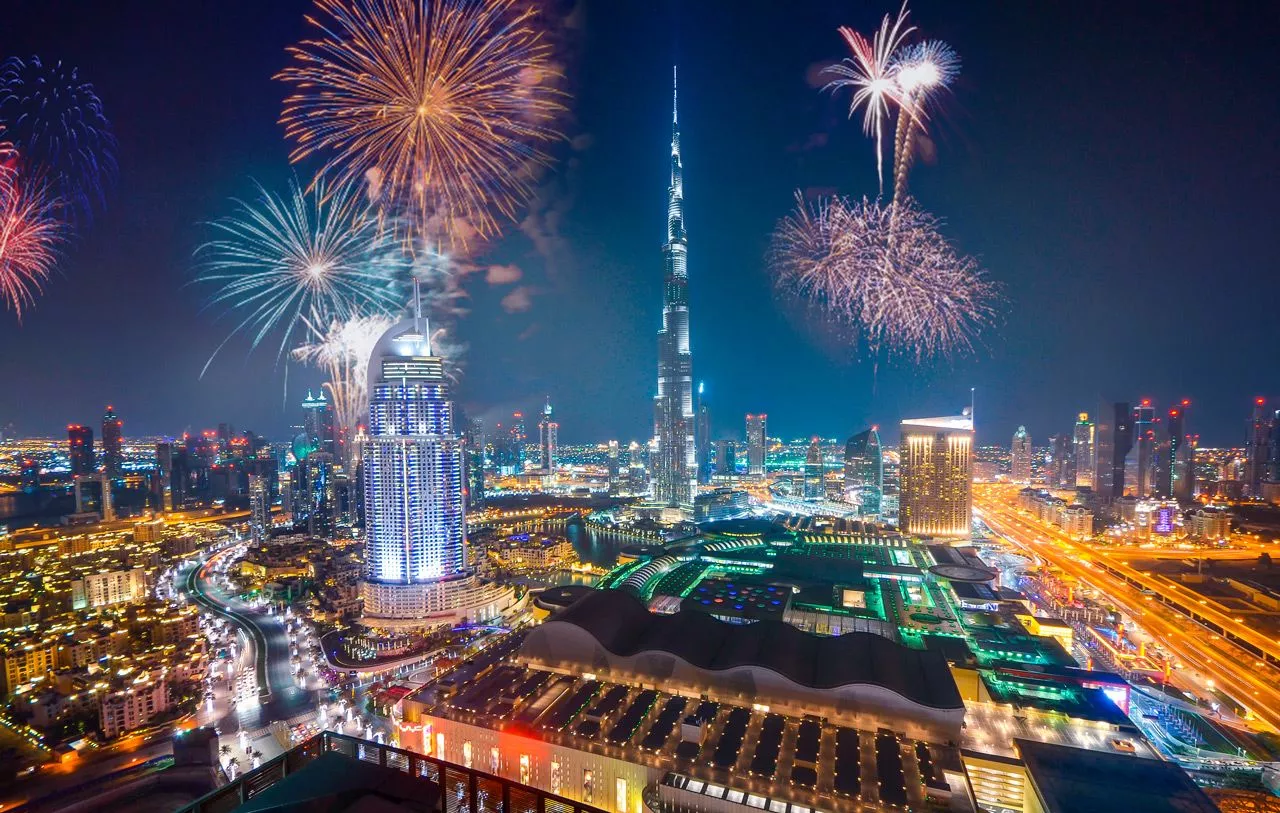
Public Holidays in the UAE in 2023-2024
The list of public holidays in the UAE includes both national and religious holidays that have special historical significance for the country. That being said, the UAE celebrates special events that have influenced the development of statehood and independence of the country. The celebration of national holidays here may be accompanied by public festivals and fairs. In addition, all national holidays are linked to the Gregorian calendar and have fixed dates. As for the religious holidays, these are determined according to the lunar calendar with fluctuating dates.
Flag Day – November 3rd
The Flag Day celebrations were initiated in 2013 under the leadership of His Highness Sheikh Mohammed bin Rashid Al Maktoum, Vice President of the UAE and Ruler of Dubai, to honor the country’s past, present and future. The celebration takes place on November 3rd as the anniversary of Sheikh Khalifa bin Zayed Al Nahyan becoming president of the UAE in 2004. Every year, at 11am sharp, the national flag is raised on all public and private buildings in the UAE and all residents pay tribute to the founding fathers of the state.
Commemoration Day – December 1st
Commemoration Day, also known as Martyrs’ Day, was previously celebrated annually on November 30th, but as of 2019, this has been moved to December 1 to ensure that Memorial Day and the UAE National Day follow each other. This day pays tribute to all Emirati citizens who have died for their country’s freedom. From exactly 8am to 11am, national flags are lowered throughout the UAE, and a moment of silence is held at 11.30am, followed by the singing of the national anthem.
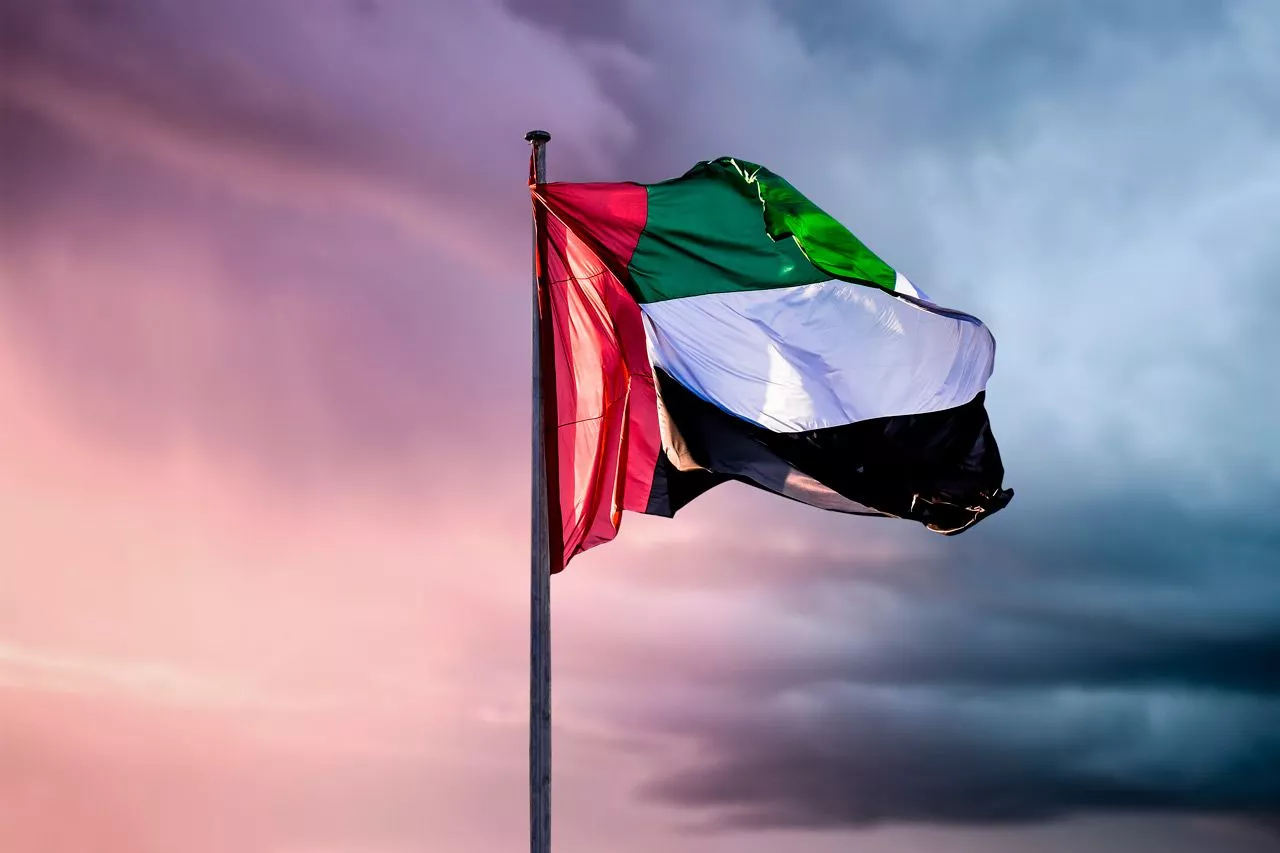
UAE National Day – December 2nd
The UAE National Day falls on December 2nd every year and is celebrated for 2 days. The celebration marks the day of December 2nd, 1971, when the rulers of all the 7 emirates signed an agreement to create a single state called the United Arab Emirates. The main theme of the holiday is “Spirit of the Union”, where all buildings are decorated in the colours of the UAE flag: red, white, green and black. As part of a celebration, the country hosts various events, such as concerts, cultural and entertainment events, raffle prizes, and special holiday discounts at stores and shopping malls.
Gregorian New Year – January 1st
Regardless of nationality or religious beliefs, everyone in the UAE enjoys celebrating the New Year from December 31st to January 1st. As a general rule, all celebrations are accompanied by parties, parades and fireworks. The central place of New Year celebrations is Downtown Dubai, with a stunning laser and firework show projected on the base of the Burj Khalifa. In addition, colourful pyrotechnic shows can be watched on the Palm Jumeirah. In Abu Dhabi, the scale of celebrations is a little smaller, with fireworks on the Corniche and Yas Island promenade. NBD! For New Year celebrations, all UAE citizens enjoy a day off on January 1st, with the regular working day reconvening on January 2nd.
Ramadan
Ramadan is one of the biggest and most important holidays in Islam. It is the 9th month of the lunar calendar, during which all Muslims observe a strict fast. In addition, it is a month of strengthening faith and will, as well as spiritual and moral purification. Muslims are forbidden to eat or drink from sunrise to sunset. Tourists and representatives of other religions are advised to refrain from eating in public places during daylight hours. In 2023, the beginning of the holy month will fall on March 23rd according to Ibrahim Al Jarwan, the chairman of the board of directors of the Astronomical Society of the Emirates, a member of the Arab Union of Astronomy and Space Sciences (AUASS). The end of the holy month is expected to fall on April 20th, but the exact date will be announced nearer the time by the lunar committee. During Ramadan, no days off are declared for government offices, however workdays are reduced by 2 hours. Moving around during Ramadan for non-Muslim foreign nationals is a rather tricky period, because at the time of strict fasting you have to observe the rules and traditions of Muslims. It is forbidden to drink and eat in public places, wear revealing clothing, etc. out of respect for local traditions. Any violations are punishable by fines or imprisonment. Additionally, many food establishments do not operate during the day (except for hotels and resorts). In 2021, the government made some amendments regarding the operation of public establishments serving food without the need to have privacy screens in their windows during the day. Since the COVID-19 pandemic, rules around eating in cafes and restaurants during the day have been relaxed. In 2024, Ramadan is expected to start between March 10th and April 9th.
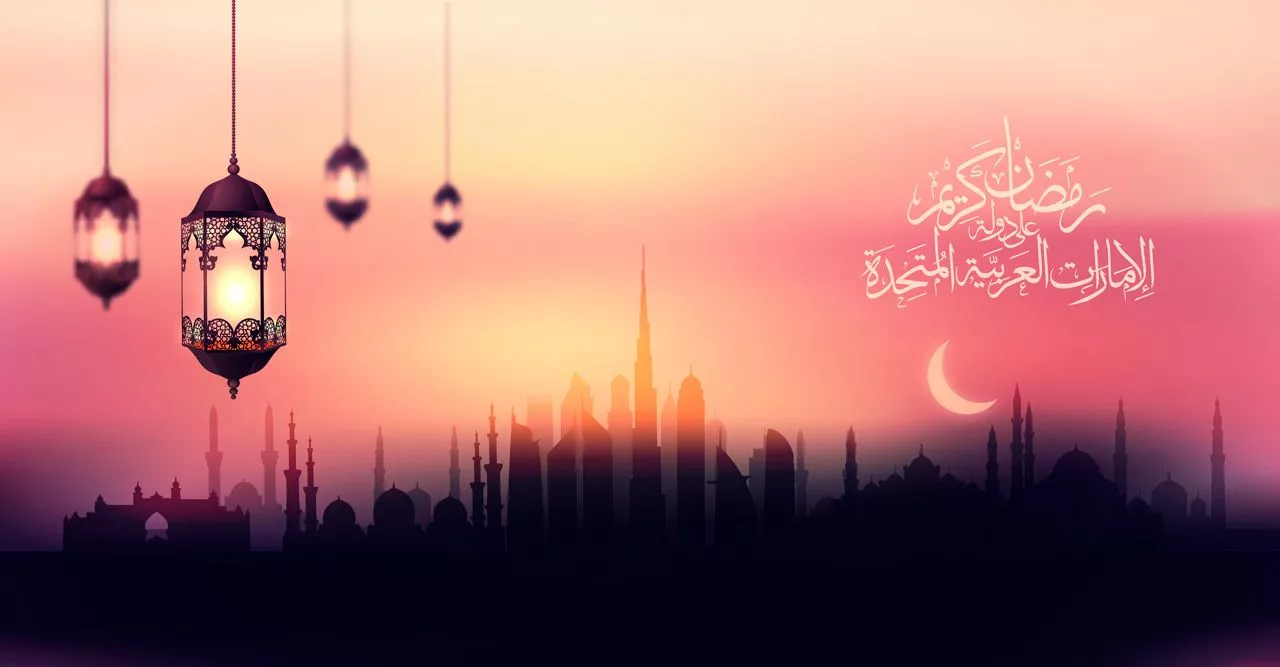
Eid al-Fitr
Eid al-Fitr is celebrated to mark the end of the Holy Month of Ramadan. It is worth noting that “Fitr” means “breakfast” in Arabic, and the holiday is celebrated with a special morning prayer on the first day of the month of Shawwal. On this day it is customary to wear your best clothes, give small gifts to friends and relatives, spend time with family, cook various mouthwatering dishes and sweets, as well as help the poor and needy. The holiday is accompanied by different show programmes, dance performances and other activities throughout the emirate. According to the Gregorian calendar in 2023, Eid al Fitr is expected to begin on April 20th and end on April 23rd. In 2024, the dates of the celebration are expected to be scheduled for April 9th–12th. NBD! Ramadan and Eid al-Fitr are a perfect time to visit the UAE. For example, in Dubai, many hotels, branded stores and malls offer lucrative promotions and discounts on shopping and entertainment.
Arafat Day
Arafat Day is celebrated around the 70th day after the end of the month of Ramadan, and is the last day of Hajj. It marks the 9th day of the 12th month of the lunar calendar; Zul Hijjah. On this day, pilgrims to Mecca perform a prayer at the foot of Mount Arafat. Although it is an official holiday in the UAE, there are no mass celebrations on this day. In 2023, the holiday will fall on June 27th, and in 2024 – on June 15th.
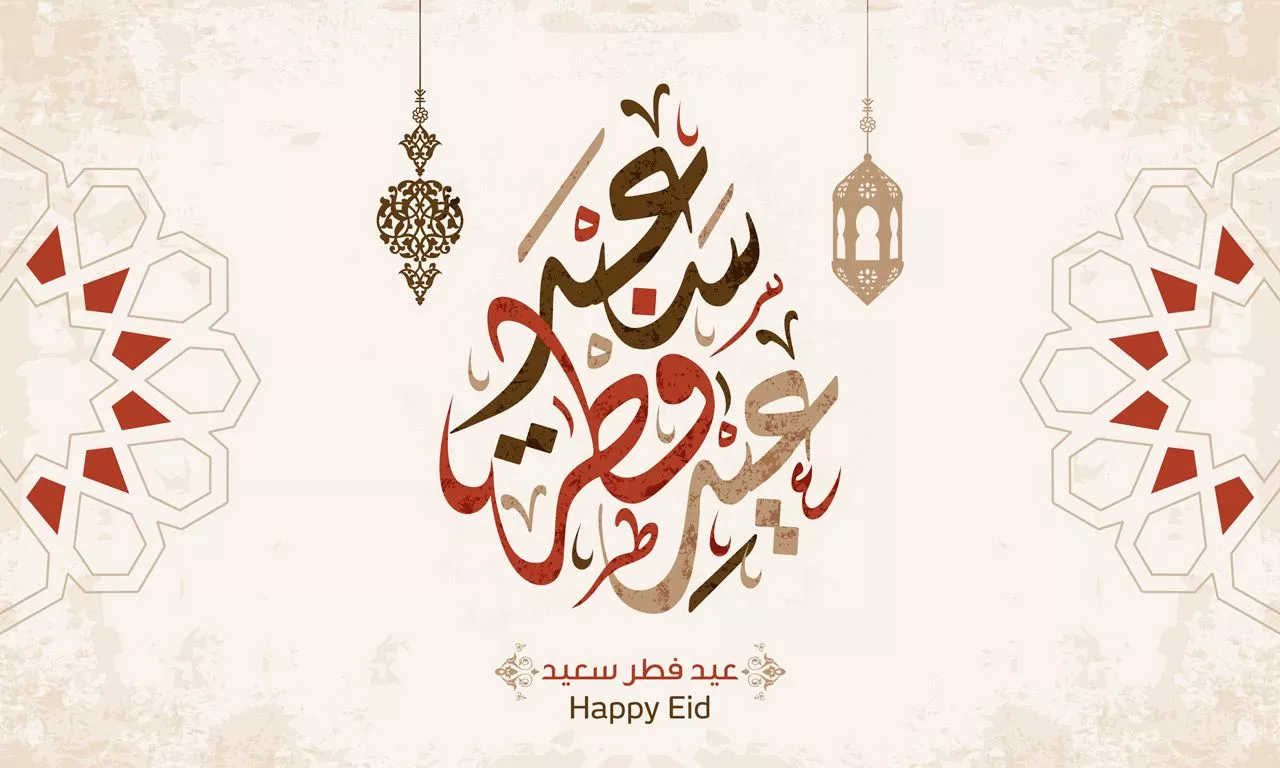
Eid al Adha
Eid al-Adha is also known as the “Festival of Sacrifice”. It follows immediately after the Arafat Day and is celebrated to commemorate the ordeal of the Prophet Ibrahim when he was prepared to sacrifice his own son for Allah. On this day it is customary to hold an additional morning prayer (Eid) and to sacrifice a ram, a sheep, a camel or a cow. Most remarkably, it is not permissible for an animal to be diseased in any way, nor is it permissible to sell or hide any meat. According to the Qur’an, it is customary to keep one third of the meat of a sacrificial animal, to give the second to family and friends, and to donate the remaining third to the needy. In 2023, the celebration of Eid al-Adha will fall on June 28–30. In 2024, the expected dates are June 16–18.
Islamic New Year
The Islamic New Year, also known as the Hijri New Year, is the first day of Muharram, which is the first month in the Islamic calendar. Since these days in the Islamic calendar begin at sunset, each year the event falls on a different day. Muharram is a very sacred period to Muslims around the world. On the first day of the month it is customary to devote oneself to prayer, reflection and family, as according to old beliefs, how one spends the first month of the year will reflect on the rest of the year. According to the Hijri calendar, the year 2023 marks the year 1444/1445. In 2023, the holiday falls on July 21st, and in 2024 it falls on approximately July 7th.
Prophet Muhammad’s Birthday
Although the birthday of the Prophet Muhammad or Milad-un-Nabi is marked by days off, it is not customary to arrange a lavish celebration in the UAE. Mostly there are various lectures and seminars on religious topics being held. In 2023, the celebration falls on September 29th, and in 2024 it is expected to fall on September 15th.
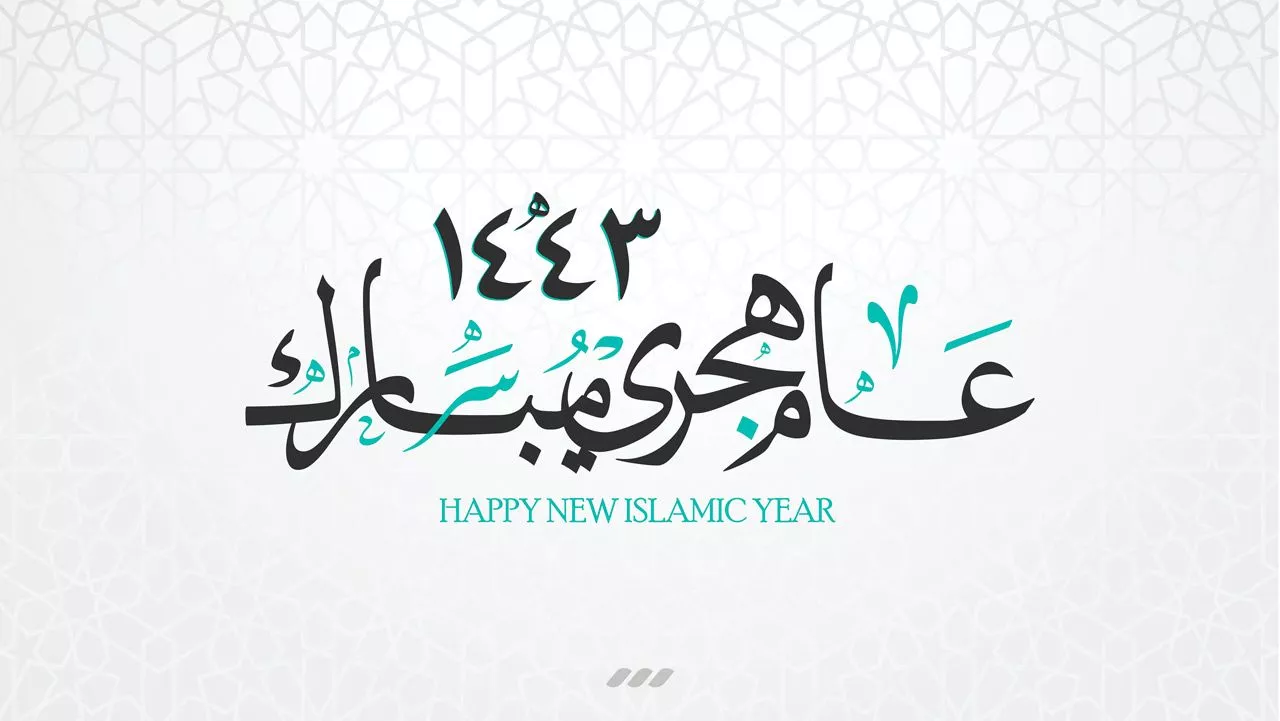
School and Bank Holidays
During 2023–2024, all public and private agencies, federal ministries and institutions (including daycare centers, banks, and schools) will be closed during the following holidays:
<ul><li>New Year’s Eve</li><li>Uraza Bayram</li><li>Arafat Day</li><li>Eid al-Adha</li><li>Islamic New Year</li><li>Prophet Muhammad’s birthday</li><li>Commemoration Day</li><li>UAE National Day</li></ul>
Winter break applies to all schools regardless of their curriculum, and spring break dates apply to both private and public schools that teach in line with the UAE Ministry of Education curriculum. Schools that comply with foreign programmes will either take a break for 3 consecutive weeks, as allowed in each emirate, or for 2 weeks in a row and then a third week throughout the year. Schools with an Indian curriculum are an exception, as their school year begins in April. Students usually take a summer break in July and August before returning for the second semester in September.
Non-Muslim Holidays
Since a large part of the UAE population are residents of other countries, in addition to religious and national holidays in the UAE, March 8, St. Patrick’s Day, as well as Christmas and Easter, are widely celebrated here. These holidays are not accompanied by days off, but nevertheless, there are various celebrations, events and discounts.
Christmas
As one of the UAE’s multinational emirates, Dubai holds a variety of events in honour of this holiday. As December 25th approaches, stores, malls, hotels, and homes are decorated with giant Christmas trees and holiday tunes are played everywhere. Destinations such as Souk Madinat Jumeirah and WAFI Mall host annual Christmas fairs where visitors will find a variety of Christmas decorations, traditional food, drinks, contests, songs and gifts. In addition, in Abu Dhabi the luxury Emirates Palace houses the world’s largest and most expensive Christmas tree. In the churches of the UAE you will also find many services for different denominations.
Valentine’s Day – February 14th
Valentine’s Day is a very popular holiday among all UAE residents, although it is not an official holiday. In Abu Dhabi and Dubai, it is customary to decorate certain streets and establishments with flowers and balloons. Most restaurants arrange special offers for a romantic dinner. For example, in Dubai some of the best locations to celebrate Valentine’s Day are the rooftop restaurant CÉ LA VI, Bab Al Shams Desert Resort & Spa and Anantara The Palm Resort.
International Women’s Day – March 8th
International Women’s Day is celebrated every year on March 8th to celebrate the role of women and their contribution to political, cultural, economic and social development around the world. For example, the President of the UAE, His Highness Sheikh Khalifa bin Zayed Al Nahyan, empowers women in the country by encouraging them to hold the highest positions in the Emirate’s government and the Federal National Council. Some of the exciting events and activities that women in the UAE can take advantage of during International Women’s Day include visits to art exhibitions, facials and spa treatments, ladies’ nights out at various clubs and bars, and unique menus at high-end restaurants.
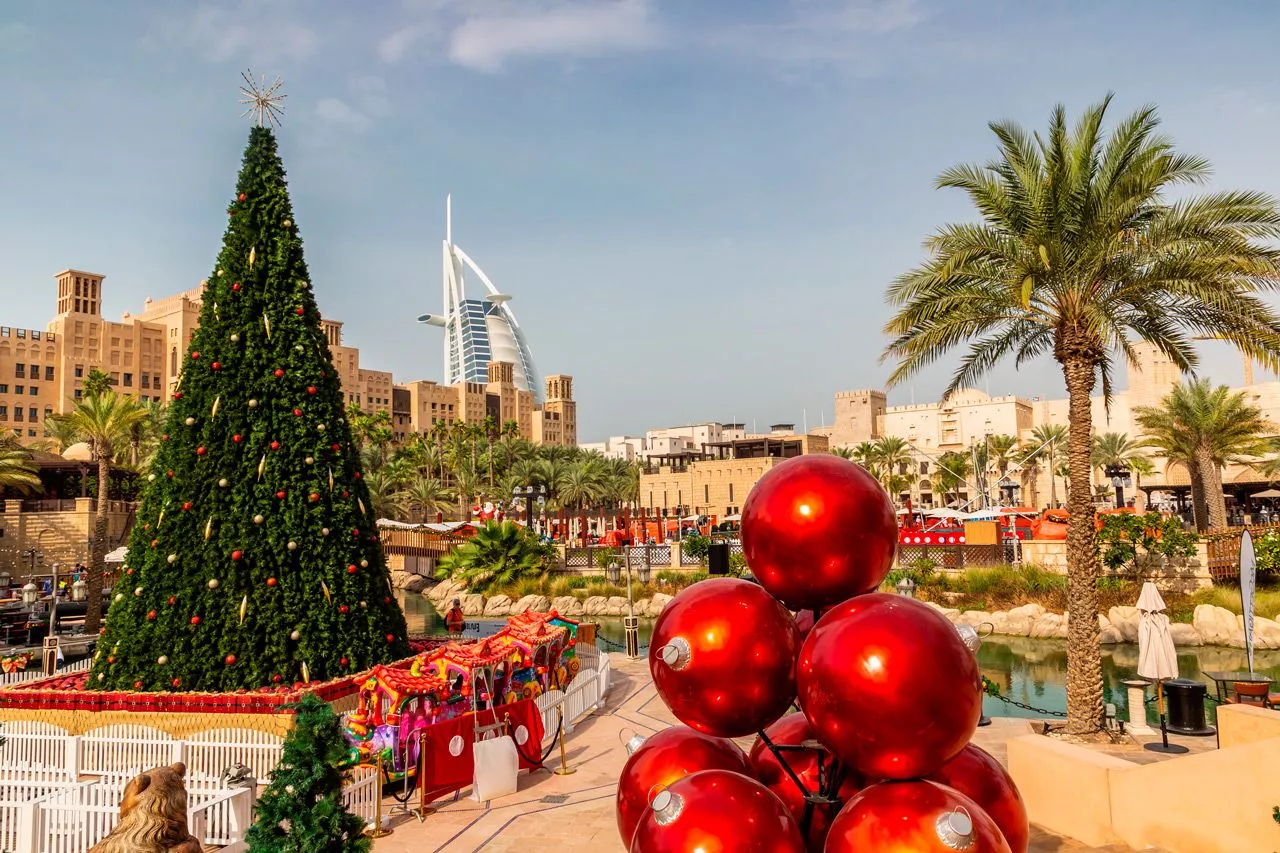
St. Patrick’s Day
Traditionally, St. Patrick’s Day is celebrated on March 17, and many establishments in the UAE have green lights, themed nights and special menus to honour the world’s most famous Irishman. F&B venues include Bla-Bla, Black Tap Craft Burgers & Shakes, Garden on 8, Seafire Steakhouse, The Irish Village, The Croft and Blacksmith Bar & Eatery, among a long list of others, will host St. Patrick’s Day events. In 2022, many iconic locations across the UAE, including the Burj Khalifa, the Burj Al Arab, Dubai Frame and Dubai International Airport turned green for the occasion.
Easter
Easter is another popular holiday in the UAE. Many restaurants offer special festive menus, whilst all the necessary paraphernalia for the celebration can be found on the store shelves in supermarkets etc. Children can enjoy colouring Easter eggs, watching thematic movies and taking arts and crafts lessons. In addition, many hotels tend to host an Easter egg hunt game.
Halloween
The traditional Halloween celebration in the UAE begins a week before October 31st. This holiday quickly gained popularity in the UAE and it is very entertaining. During the celebration it is customary to host a wide variety of themed parties, festivals and show programmes for adults and children. The largest Halloween celebration is held at IMG Worlds of Adventure, along with a carnival show. Hotels and resorts often host carnival themed brunches, and Palm Jumeirah Beach offers DJ performances. At the same time, many residents throw costume parties, etc. You can purchase costumes as well as all the necessary decorations in many shopping malls in Dubai and themed party stores around the country.
